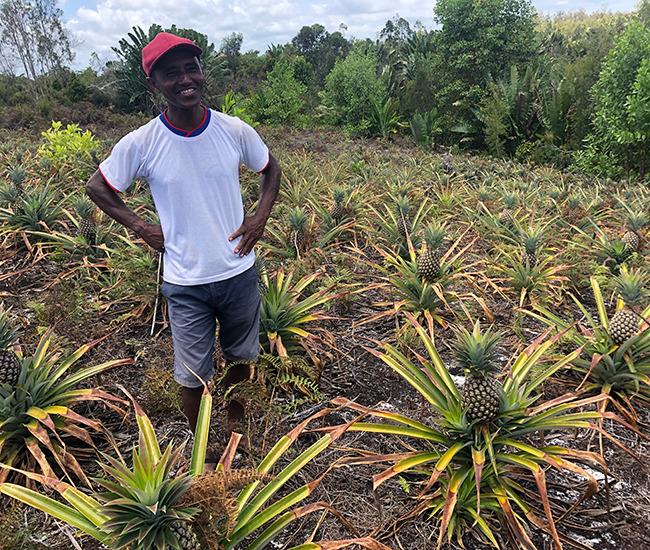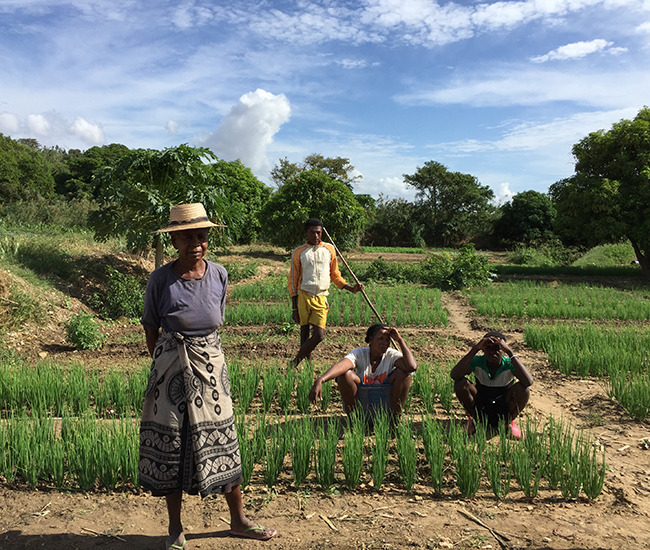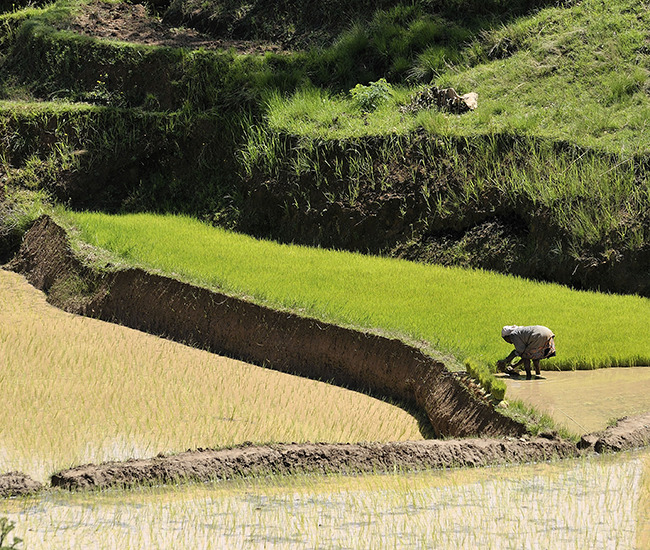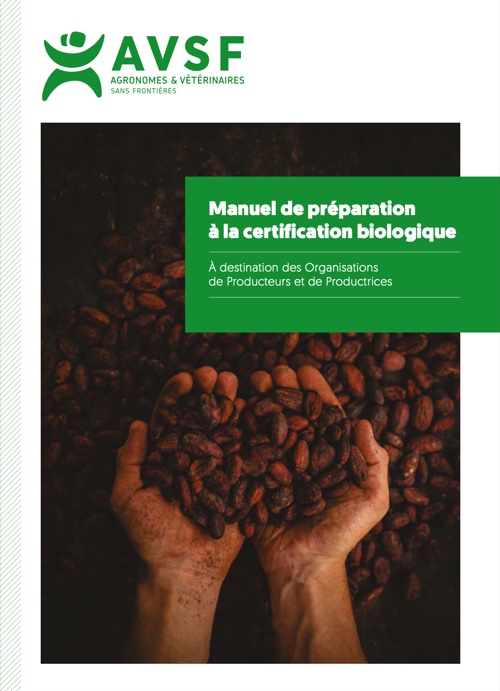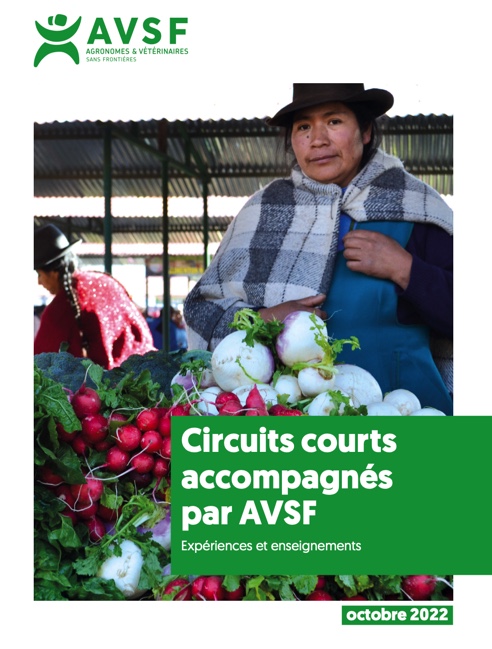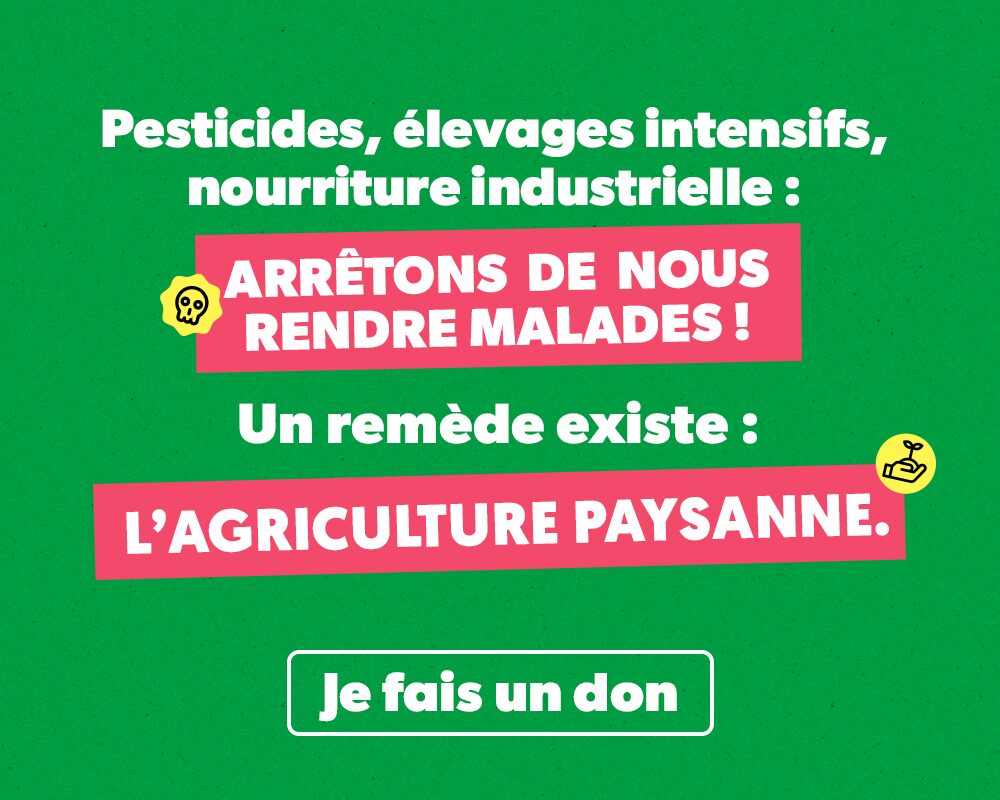After rice (a staple crop in Madagascar), spices, vanilla, and litchi are the three most important crops for both the economy of Madagascar and the food security of smallholder families. These crops are grown mainly in the island’s coastal areas. For most of these products, the harvest and export have traditionally been controlled by a monopoly run by a handful of wealthy Malagasy, Indian, or Chinese families who impose their own rules upon the producers. Thanks to the support of AVSF, 250 producers from the town of Fénérive on the island’s eastern coast decided to band together to form a cooperative so that they could process and directly export high-quality products independently – products such as litchi, vanilla, pepper, cinnamon, pink peppercorn, ginger, etc. Starting in 2006, AVSF was involved in helping set up this small union of cooperatives (originally, there were just four members). The union was officially established in 2009. AVSF worked tirelessly both to build the union’s technical and marketing capacities and to ensure that smallholder leaders received thorough training. Today, the management of the cooperative lies solely in the hands of the smallholders themselves. AVSF was instrumental in improving the quality of their litchi production and in helping the smallholders obtain the ”fair-trade” and ”organic” certifications. As a result, the Fanohana Union has become the first and only organization in the world to produce and export organic and fair-trade litchi to Europe.
With the help of our partner Ethiquable, which currently sells fruit juices and fruit-based desserts in France, the first shipment, consisting of 14 tons of frozen litchi pulp, was exported to France in 2008. Although the litchi harvest is only three to four weeks long and much of the fruit ends up going bad on the tree, Fanohana is able to make use of as much of the fruit as possible by processing it into frozen litchi pulp on site in the town of Tamatave, working in cooperation with a small factory. The union buys litchi from its smallholder members at 600 Ar/kg (about 0.21 €), whereas the local buyers pay 500 Ar/kg (0.18 €) at the beginning of the season and then lower their prices to 300 Ar/kg (0.11 €) at the end of the season. The families are then able to reinvest the extra money in their production activity.
Starting in 2011, AVSF also began helping Fanohana to diversify its activities by branching into the production of spices – a move that also enabled smallholder families to diversify their income. A small spice-processing facility was opened, and in 2012, Fanohana began exporting its own vanilla beans, pepper, cinnamon, etc. These monthly sales have provided the families with a steady revenue stream, enabling them to buy basic goods (oil, soap, etc.), clothes, and most importantly, pay for their children’s schooling. The Fanohana Union is the first Malagasy cooperative to export its litchi and spices to France and Switzerland without using an intermediary. After seeing its sales triple over the course of the past three years, the Fanohana Union has become financially independent in 2012. Now, Fanohana is moving into other markets abroad and has even begun to conquer the national market in Madagascar!
This project is supported by the Fonds International de Développement Agricole des Nations Unies [UN’s International Fund for Agricultural Development], the Programme de Promotion des Revenus Ruraux (Malagasy Ministry of Agriculture), the Agence Française de Développement, the Rhône-Alpes Region, and the Region of Bretagne [Brittany].
Click on the video below to hear from Adrien Brondel, a technical assistant involved in this project
